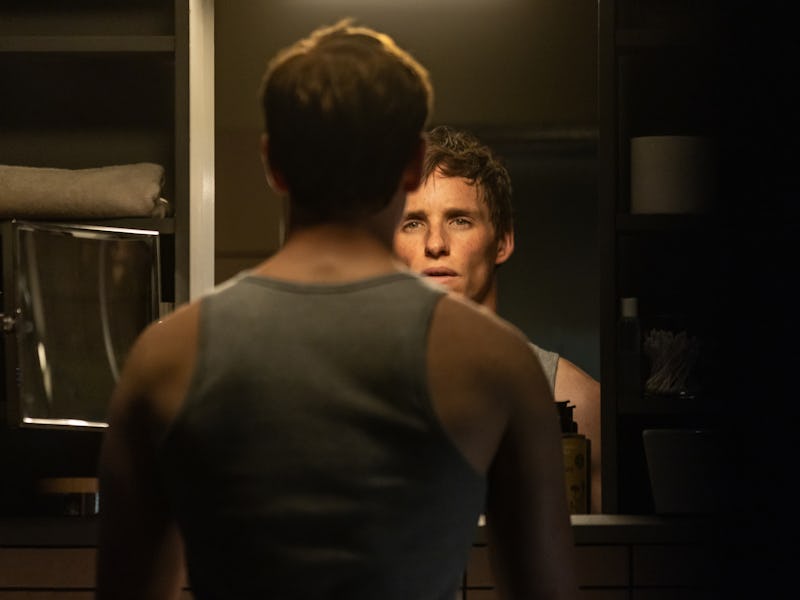The Day Of The Jackal Is The Best Of The Bond Copycats
Peacock’s spy reboot may get bogged down in minutiae, but it’s still worthwhile.

James Bond has been holding down the spy genre since the 1950s, but The Day of the Jackal has given the suave super-spy some major competition. Frederick Forsyth only published one story set in the Jackal-verse, but that’s been enough to sustain generations of fans. The 1971 novel was adapted into a jaunty 1973 film, and again (albeit to less acclaim) in 1997. Now, it’s time for history to repeat itself, and deliver an update on the classic spy adventure for a new generation.
That’s where Peacock’s Day of the Jackal comes in. A 10-part limited series starring Eddie Redmayne and Lashana Lynch, the new Day of the Jackal is just one of many spy stories floating through the zeitgeist this year. Each seems to owe something to the Bond franchise, including the most compelling members of its cast. Lynch stole the show in the most recent Bond film, No Time to Die, and she’s in great form again as another determined MI6 operative. Redmayne, meanwhile, is a subversive choice to play “the Jackal,” a cold-blooded crack shot who sells his services to the highest bidder. But the British actor is nothing if not a chameleon, and he puts those skills to great use.
With Lynch’s Bianca Pullman playing opposite Redmayne, the new thriller takes on a compelling cat-and-mouse edge. But Day of the Jackal is determined not to rely too much on that familiar trope; it wants to explore the world of espionage and contract killing from a modern, even nihilistic, lens. It may be the bleakest of this year’s Bond copycats, but it’s also the most ambitious, and if its finale (which hits Peacock on December 11) sticks the landing, it could also be the best.
Jackal pulls you in right from its opening moments, where we’re introduced to Redmayne’s steely assassin as he’s about to set off for his latest job. He’s decked out in heavy makeup, disguised as the surly janitor who lies dead in the next room. He’s borrowed this man’s likeness to infiltrate the HQ of an infamous far-right politician, Manfred Fest. Though he’s nowhere to be found, the Jackal wounds Fest’s adult son, which lures his true target out in the open the next day.
The Jackal’s impeccable disguises are just one part of his appeal. The other is his skill as a sniper: he executes the elder Fest by firing from miles (yes, miles) away. That record-breaking distance buys him the time to make his daring escape, but it also captures the attention of MI6, who are brought in to help the Germans suss out the perpetrator.
Bianca is an expert with guns, snipers especially, so the Jackal’s latest mission fascinates her. She finesses her way into a meeting way above her security clearance and volunteers to find this mysterious assassin, and thus the chase begins.
Lashana Lynch is the perfect foil to Eddie Redmayne.
Jackal, thankfully, takes its time. The series wants us to revel in these characters’ humanity — and even, sometimes, the lack thereof. While Bianca struggles to gain a lead on an Irish arms manufacturer, the Jackal busies himself with what can only be described as assassin housekeeping. He picks up an alibi in Germany and travels through France to his home in Spain, where his wife and young son live. As he works alone, he’s also the first point of contact for his clients. So when his latest patron refuses to pay the invoice for his work in Munich, he has to track them down himself. The series moves at an indulgent pace, but it’s easy to forgive when exploring this unique brand of self-employment.
Bianca’s struggles at work are likewise the most engrossing part of her story. Though she butts heads with her superiors at every turn, she has no problem indulging in her obsession. That momentum may slow when Bianca has to navigate thorny territory at home, risking disappointment from her family by prioritizing work. In that way, Bianca and the Jackal are the same, an observation the series really wants you to get. She may not be a mercenary, but she does end up hurting more people than she means to. It’s an interesting narrative thread, especially when it zooms out to include those Bianca works with. But once the Jackal takes on a new target — a tech bro (The Crown’s Khalid Abdalla) whose latest invention threatens the one percent — it begins to feel like a distraction.
Engrossing as it is, The Day Of The Jackal doesn’t always know what to do with its many subplots.
With 10 hour-long episodes — the bulk of which indulge more in tangential domestic drama rather than the taut rapport between the Jackal and Bianca — the series isn’t exactly bingeable. The Day of the Jackal is denser than it has any right to be; it’s only loosely inspired by Forsyth’s classic novel, and it takes major liberties in exploring its emotional side plots.
That’s often not so bad, as it goes farther than most spy thrillers in exploring the true cost of collateral damage. When Bianca sacrifices opportunities to bond with her daughter for missions on the field (or worse, leverages an informant’s daughter for information), that focus feels earned. Other subplots, like that involving the Jackal’s suspicious wife (Money Heist alum Úrsula Corberó), don’t carry the same punch. But sometimes, it’s enough to go along for the ride, especially with a series as glossy and globe-trotting as this.